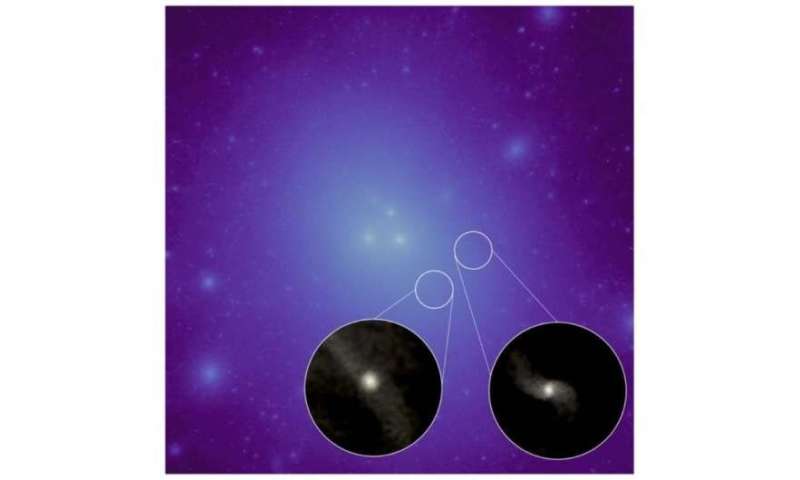Best of Last Week – Galaxies without dark matter, speed heightens risk of psychosis, brain slowdown at 60

It was a good week for space science as astronomer Bill Gray, creator of The Guide, an astrometry software package, announced that he had been wrong in claiming that a rocket on course to crash into the moon was made by SpaceX. Instead, he now claims it was the booster rocket for China's Chang'e 5-T1. Also, an international team of researchers discovered how galaxies can exist without dark matter—such galaxies are created when tiny galaxies collide. And a trio of researchers from the National Astronomical Research Institute of Thailand, Université de Lyon and Sorbonne Université found the first evidence of a quadruple asteroid system. Anthony Berdeu, Maud Langlois and Frédéric Vachier found it while studying old data from the Very Large Telescope in Chile.
In technology news, an international team of researchers announced that they had made a breakthrough in converting CO2 into fuel using solar energy through the use of advanced materials and ultrafast laser spectroscopy. A team of engineers with members from MIT and the Indian Institute of Science built a lower-energy chip that can prevent hackers from extracting hidden information from a smart device. And a team at the University of Waterloo discovered a new electrolyte for solid-state lithium-ion batteries, possibly making them a real alternative to those made with solid components. Also, a team with members from MIT and the University of California at Berkely created a tensor language prototype for high-performance computers. They claim it will allow for eliminating the need to choose between speed and reliability when writing code.
In other news, a team of researchers affiliated with several institutions in Taiwan found via a 10-year study that illicit use of amphetamines known collectively on the street as "speed" can lead to a five-fold heightened risk of psychosis. And two teams working together at the Lawrence Livermore National Laboratory's National Ignition Facility demonstrated new approaches to increasing nuclear energy production using laser-driven fusion reactions.
And finally, a team at Heidelberg University found that the average human brain does not begin to slow down until after reaching age 60.
© 2022 Science X Network